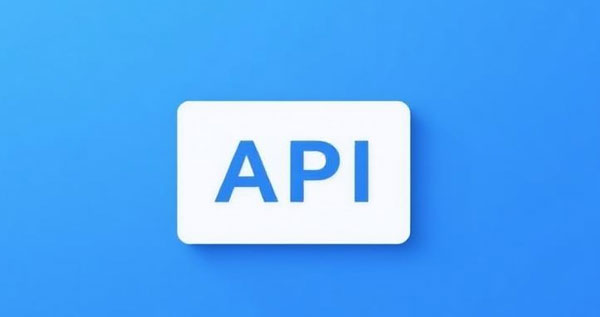How to Efficiently Scrape Job Data from Indeed Using Python
Indeed is one of the world’s largest job search platforms, providing a wealth of job listings and company information. Whether you're conducting market research, developing recruitment tools, or analyzing industry trends, Indeed is an invaluable resource. However, due to the large volume of data and high traffic, extracting information directly from Indeed can be challenging. By using Python to build a web scraper, you can efficiently gather job data from Indeed and gain deeper insights into the job market. In this guide, we'll show you how to scrape data from Indeed using Python, and explain how proxy IP services can improve the stability and efficiency of your scraper.
What is Indeed?
Indeed is one of the largest job search websites globally, offering job listings across various industries. Users can search for job opportunities, post job ads, and browse company reviews and salary information. For developers, recruiters, data scientists, and market researchers, Indeed serves as a rich source of job-related data, helping them understand market trends and job demands.
Why Use Python to Scrape Data from Indeed?
Python is a powerful and versatile programming language widely used for data analysis, web automation, and web scraping tasks. With Python’s robust libraries, we can easily extract data from Indeed. Here are some advantages of using Python for web scraping:
Easy to Learn: Python's simple and clear syntax makes it a popular choice for web scraping tasks.
Strong Library Support: Python provides powerful scraping libraries like
requests,BeautifulSoup, andSeleniumto help you quickly gather and parse data.Automation: Python scripts can be automated to run regularly, scrape the latest data, and handle concurrent tasks, significantly improving efficiency.
Step 1: Install Required Libraries
Before starting, we need to install some essential Python libraries. We will use requests and BeautifulSoup for web scraping and parsing.
pip install requests beautifulsoup4If Indeed’s page requires JavaScript rendering, you can use Selenium to mimic browser behavior.
pip install seleniumStep 2: Configure Proxy IP to Avoid Blocks
Indeed may block IP addresses that make frequent requests to its website to prevent excessive scraping. To avoid getting blocked, using a proxy IP is an effective strategy. LuckData offers various proxy solutions, including data center proxies, residential proxies, and dynamic residential proxies, which can help you bypass IP bans and maintain stable scraping.
LuckData’s residential proxies are of high quality and can meet various user needs. Here’s how to configure a proxy:
import requestsproxy = {
'http': 'http://your_proxy_ip:port',
'https': 'https://your_proxy_ip:port',
}
url = 'https://www.indeed.com'
response = requests.get(url, proxies=proxy)
print(response.text)
By using LuckData’s proxy services, you can avoid IP bans and scrape data from Indeed seamlessly.
Step 3: Write a Scraper to Extract Job Data from Indeed
Now let’s write a Python script to scrape job data from Indeed. Job information on Indeed is typically embedded in HTML tags, which we can extract using BeautifulSoup.
import requestsfrom bs4 import BeautifulSoup
# Set up the proxy IP
proxy = {
'http': 'http://your_proxy_ip:port',
'https': 'https://your_proxy_ip:port',
}
# Make a request to the Indeed page
url = 'https://www.indeed.com/jobs?q=python+developer&l=remote'
response = requests.get(url, proxies=proxy)
# Parse the HTML content with BeautifulSoup
soup = BeautifulSoup(response.content, 'html.parser')
# Extract job titles
job_titles = soup.find_all('h2', class_='jobTitle')
for job in job_titles:
print(job.text.strip())
In this code, we first send an HTTP request to Indeed, retrieving the page content that contains job listings. Then, we use BeautifulSoup to parse the HTML and extract job titles.
Step 4: Handle Dynamic Content Loading
If Indeed’s job listings are loaded dynamically via JavaScript, using requests may not retrieve all the data. In such cases, you can use Selenium to simulate browser behavior and render the page content.
from selenium import webdriverfrom selenium.webdriver.chrome.service import Service
from webdriver_manager.chrome import ChromeDriverManager
# Set up the Chrome WebDriver
driver = webdriver.Chrome(service=Service(ChromeDriverManager().install()))
# Visit the Indeed page
url = 'https://www.indeed.com/jobs?q=python+developer&l=remote'
driver.get(url)
# Wait for the page to load
driver.implicitly_wait(10)
# Extract job titles
job_titles = driver.find_elements_by_class_name('jobTitle')
for job in job_titles:
print(job.text.strip())
# Close the browser
driver.quit()
Step 5: Store and Process the Scraped Data
The job data you scrape may need to be stored and processed. You can save the data in CSV or JSON formats for easy analysis or display.
import csv# Assuming you have scraped job data
job_data = [
{"job_title": "Python Developer", "location": "Remote", "company": "XYZ Corp"},
]
# Save the data to a CSV file
with open('job_data.csv', mode='w', newline='') as file:
writer = csv.DictWriter(file, fieldnames=["job_title", "location", "company"])
writer.writeheader()
writer.writerows(job_data)
Conclusion
By using Python and the right proxy IP services, you can easily scrape job data from Indeed and gain valuable insights into the job market. LuckData’s high-quality proxy services can help you avoid IP bans and ensure stable scraping. Whether you're conducting market research, developing recruitment tools, or gathering the latest job listings, Python web scraping will be a powerful tool in your data collection toolkit.




